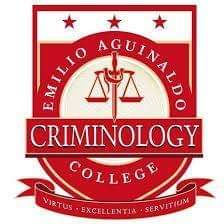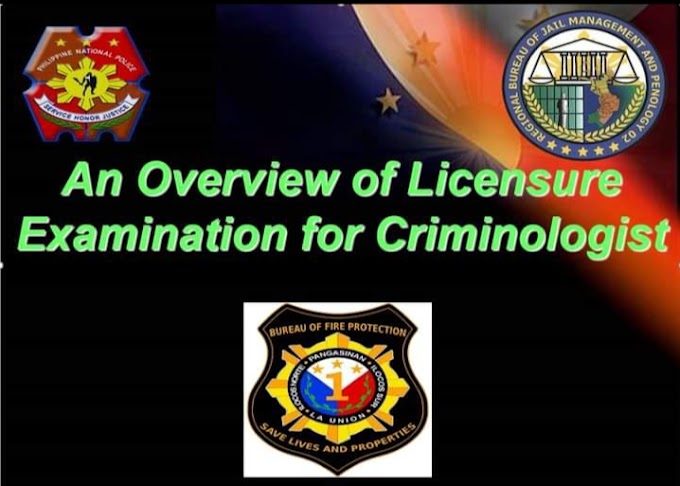GENERAL FUNDAMENTALS ON CRIMINOLOGY AND SOCIAL CONTROL:
The man and his behavior have always been subject to studies and criticism for being a concern for science and scholars since ancient times. Within the legal sciences, criminology as an interdisciplinary science that uses empirical methods deals with the person of the offender, the victim and the social control of criminal behavior. It tries to provide valid, contrasted information on the genesis, dynamics and main variables of the crime. He sees it as an individual and social problem at the same time; as well as effective prevention programs of the same and positive prevention techniques in the delinquent man.
In order to delve into theoretical aspects associated with criminology in its link with the norms and values that must be taken into account in relation to social control over the behavior of individuals and as a regulator of their conduct, we propose to analyze in this chapter, aspects that will allow, later, to search in religion for values that act or function as dynamic elements of individual and collective control of believers, as a preventive factor and inhibitor of criminal activity.
Hence,for Jiménez de Asúa the term causal-explanatory, normative and applicative come from the study of the nature of human behavior. According to the criteria of this prestigious criminologist, causal-explanatory science would try to explain crime in its origins and development within the society that produces it. It places Criminology within this science, and therefore its field of study will go beyond that of normative sciences such as Criminal Law, in charge of studying the models of human behavior that the law describes as a crime and all the sanctions that could be applied for each established behavior and that of the applicative sciences that make use of the scientific material provided by other sciences to contribute to the development of the unknowns that could arise in them,
Criminology is fundamentally based on empirical and interdisciplinary methods. It assumes as object of study the analysis of crime, the offender, the victim, social control, prevention and intervention in man known as resocialization; with the inclusion of the victim, social control and the remaining elements to be studied. This discipline expands its traditional scope by giving a "modern sociological turn that compensates for the positivist biologicism under whose auspices criminology was born." Its function is fundamentally aimed at explaining and preventing crime and intervening in the person of the offender, which means that it is more interested in preventing crime than in punishing it with greater intensity or better, accentuating the preventionist orientation of this knowledge.
Criminology is conceived within the social sciences, it is not an exact science. With the empirical methods that he uses, he tries to study through the observation of the facts, the different manifestations of delinquency and its concrete events. It is a science of what should be and studies being as such. Study reality and scientific knowledge of reality, it is always partial, fragmentary, provisional, changing. It makes approaches to the criminal phenomenon without prejudice, without mediation, trying to obtain direct information about it. Through his empiricism, his object of study is inserted in the world of the real, of the verifiable, of the measurable, without being reduced to the space of values. It implies, therefore, that its nature rests more on facts than on opinions; Thus,
Its interdisciplinary nature lies precisely in the use of scientific knowledge from other sciences that help it to understand that reality and that also nourish it, such as: biology, sociology, psychology, among other disciplines that deal with man and society and that They deal with human thought, feeling, and action. In this way, it achieves a synthesis of the knowledge provided by these disciplines, without limiting itself only to the psychological or biopsychological study of individuals, since crime is a phenomenon that transcends the frameworks of these sciences. There are many scientific disciplines that study crime as an individual and social phenomenon but, by themselves, they do not offer a scientific answer about the criminal problem and everything that develops around it.
For this reason, Criminology draws on the knowledge provided by these sciences, constantly expands and modifies them, it seems to be satisfied with obtaining a probability and not the discovery of cause and effect relationships. It acts as a coordinator and integrator of the information provided by those who are interested in the criminal phenomenon, feeding back on its conclusions, which it finally corrects and enriches with the result of its own knowledge.
The epistemological disquisition about whether or not Criminology is a science is not included in the content of the investigation, however, we consider it appropriate to express our opinion on this point in a general way. Regardless of the approaches formulated by the various criminologists and criminal lawyers who have addressed the problem, I consider that we must see Criminology as a science, which has accumulated a system of knowledge throughout history, related to a field of certain knowledge. , and although included within the legal sciences emanating from the social sciences, it is independent, and defends a space of scientific activity, it is linked to the space of professional activity that is not defined only for Criminology since it is a space shared with other sciences. In the words of Dr. Caridad Navarrete, "it has a shared object", she uses an empirical method fundamentally because she also makes use of others (taking into account that the phenomenon of criminality also requires the astuteness of researchers and an open attitude , flexible and empathic that allows them to capture the criminal phenomenon as a human and community problem) and the use of other more precise means of investigation, since crime, ultimately, is a human and cultural phenomenon. Likewise, we can define that it is born from different branches of scientific knowledge, providing valid, reliable and contrasted information on the criminal problem, it has its own and mobile object of knowledge since historically it has been changing and its investigations are related to problems of the social practice,
Taking into account the above, criminology is a science composed of a set of rational knowledge that requires the use of reason and the coherent systematization of well-founded and verifiable statements, which are true or probable because it is not lawful to attribute to this science or certainty or accuracy. These are partial truths subject to correction when new empirical data or experiences show the need for rectification, according to certain scientific conventions. Evidence verified in its confrontation with reality, phenomena that can be contrasted empirically, subjected to tests of verification, confrontation or empirical refutation, organically systematized as this knowledge does not remain isolated but is incorporated as part of a system, although what is essential is the vision that perceives the relationships between phenomena. This science refers to objects of the same nature, to objects that belong to a certain aspect of reality and that have a certain homogeneity among themselves and their knowledge is likely to be transmitted through a language that is its own.
We agree with the criteria of Dr. Tania de Armas, when she places Criminology as a science, with the emergence of the Positivist School, in Italy, at the end of the 19th century, and not with the classical school, since at the indicated stage Certain sciences began to develop that were synonymous with progress and prestige, attracting those people who even replaced religion with science, among other reasons, since for the first time it looks at the individual, the look is directed at the “criminal” man. and the victim in some way.
«Criminology acquired autonomy and the rank of science when positivism generalized the use of the empirical method, that is, when analysis, observation and induction replaced speculation and syllogism, overcoming abstract, formal and deductive reasoning» (Pablos de Molina, 1994:47).
The field of criminology covers the phenomenon of the formation of laws, their violations and the reactions to such violations; consequently, "criminology encompasses the entire field of the criminal phenomenon, its emergence, the special characteristics of its commission, the intricate bio-psychosocial causes that concur and, finally, its possibilities of avoidance." Criminology takes into account the phenomena of the past, present and future, thus encompassing the event to occur as well as events not yet occurred but with a simple prospect of occurring. Dr. Tabío found in this science a straight and better path for the knowledge and prevention of human actions and the evils and weaknesses of man.
Within the training of jurists it is essential to pay attention to the Criminological theme since during the exercise of the profession they will face a series of problems, among which the religion theme appears, mainly its link to criminal activities, in which that they have the obligation to know, intervene and resolve with the greatest fairness. In this sense, knowledge about the functions that this science fulfills and how we must apply it in practice is necessary and vital. Its modeling function will contribute to obtaining the theoretical model, to accumulate all the necessary information and analyze it; It should serve as a guide to explain the phenomenon of crime and all the factors that come together in it. It must give opinions, alternatives,
It is impossible to live outside social phenomena, the formation of social and individual values, marginality, prostitution, and other phenomena that can make a society sick if they are not visualized and taken into account.
Finally, criminology must help educate the population on the subject of crime. As it constitutes a community and social phenomenon, ignoring it will be of no use; on the contrary, debating the subject without taboos, without reminiscences and without so many problems, will make us much more approachable and prepared to contribute to the social work of our Revolution, by contributing a more real, objective assessment and alert to the legislator, in the case of facing negative consequences of a criminal law, or that is in conflict with social sentiment.
We agree with the scholars of the subject, when they state that certainly in Cuba there have been different currents of criminological thought to explain Criminology. There was a strong influence of the positivist current defended by Lombroso in trying to search for and find the causes and conditions of crime, thereby dividing positivism, the understanding and scope of this theme by reducing its study to crime in its relationship with the criminal and its causes; but since the causes and conditions that facilitate the offending behavior are infinite in nature, there are many factors that affect criminal activity, where we can mention, among others, the role of the family, education, school, which are ultimately , the role essentially played by social control.
Every society or social group must have rules of coexistence, with a discipline that ensures the internal coherence of its members, correspondingly it is forced to deploy various mechanisms that ensure their conformity with its norms and standards of conduct; point where social control functions its performance. Its implementation is necessary once a mismatch between man and society comes to light, said implementation can be both coercive and persuasive controls that regulate, guide and repress unwanted behaviors, or behaviors not recognized as valid in a given society.
Social control can be defined not only as the mechanisms, procedures or retaining walls that society has to align the conduct of its members, but as those that promote and guarantee the conduct of the individual to community models and norms. It is also conceived as the "capacity of society to regulate itself according to principles and values accepted by the majority".
I share the criteria of Doctor De la Cruz, when he states that social control is going to try to maintain or create the necessary conditions in search of social harmony and for this it is exerted on individuals in order to teach them, persuade them and compel them to use the values accepted by the group with the ultimate goal of achieving a social discipline that is functional for the maintenance of the structures that sustain the State.
As any society requires homogeneity or perhaps a minimum essential stability for it to function, in this sense the right to differences with respect for others can be promoted, without invading the individual sphere, which includes religious issues. Social control pretends that the subject behaves in an appropriate way for others, allows to achieve the aforementioned homogeneity, in which case education, culture, family, work and even religion, are positive forms of social control since it provides the subject with all the instruments it needs for society and in turn provides society with a prepared subject.
In the academic field, different readings are made about social control, one of them is that it can and in fact is examined as a political issue. This proceeding includes the way of imposing, transforming or simply preserving a certain social order. Our well-known criminal and criminologist, Dr. De la Cruz Ochoa, tells us that under this prism categories are used that include power, domain, state, law, repression, authority, called political and legal. He interprets social integration and socialization in a social dimension as a sociological category of social control. Social control is also seen, probably by various criminologists, not as one more element of enrichment for the object of criminology, but as a new model or paradigm of it,
We had defined in advance what we mean when we talk about social control and we included in that definition all the procedures used by society to adopt or maintain social discipline within the behavior patterns and values accepted as valid, necessary or convenient, but we will also refer to the function of a group or personal leader and the use of its own procedures, as it happens in religion, with the purpose of keeping aligned the behavior of individuals in society who, in essence, are not more than the methods used by social control. Meanwhile, their strategies will fall on the socialization, prevention and repression of individuals.
For social control, socialization is the process of interaction between the individual and society to which the norms and values that the latter will capture during the development of his personality are incorporated, triggering as a result his formation as a social being, and it is a process that occurs in both religious and non-religious people.
Socialization refers to the transformation that individuals undergo in their interaction with others, it is the process by which the developing individual adapts to the requirements of the society in which he lives, it is closely linked to learning and the formation of personality every time it is done during the evolutionary process; will understand as prevention in its most specific concept, everything that is done with a view to preventing certain behaviors, not related to the normative system, from occurring in society, an aspect in which, in my opinion, religion contributes, and finally it will act in its repressive role when the other strategies of social control fail and essentially it will comply with punishing behaviors that violate the normative system.
All the elements that make up social control are involved in the materialization of the definitions of crime, delinquent and delinquency; in this sense, it will define which behaviors will be typified as a crime, which is why it creates the crime by having to define it (legislative level), who is a criminal, creating precisely that criminal by identifying a person instead of another who has committed a similar conduct (police-judicial level) and what the delinquency is. Once crime and delinquent have been defined, a selection is made of the cases that will enter the official records with the intention of indicating the criminal reality of a country (legislative, police, judicial and criminal enforcement levels). All of them have been given the name of “criminalization processes”.
Among the modalities of sanctions available to social control, also known as social control measures, positive and negative sanctions appear in the literature on the subject. It is understood as positive those that occur when the individual acts coherently with the normative system of social control. The conformity and social discipline of the individual is then translated into rewards or recognition. While the negative ones are the sanctions, or the consequences that are faced in the face of the violation of the normative system of social control.
With a view to obtaining the conformity or adaptation of the individual to its normative postulates, and ultimately to social discipline, the community uses two kinds of instances or carriers of social control and these are: formal and informal:
• Formal instances. The formal agents of social control are: the police, justice, prison administration.
• Informal instances. The informal agents of social control are: family, school, profession, religion, public opinion, among others.
Formal social control is the one whose main function is the fulfillment of prevention and repression strategies, it is the one that is legally established. Identified as the establishment of public procedures that are delegated to certain institutions that are in charge of achieving it. Due to the certain degree of formalization attributed to it,
Formal social control is reached when the other agencies contemplated within informal social control do not work properly, for which it is necessary the intervention of these formal instances that act in a coercive way and impose sanctions qualitatively different from social sanctions, which reach stigmatize the offending individual by attributing a status of deviant, dangerous, delinquent.
Although many times the limits between both instances are diffuse and sometimes difficult to establish since what is formal can tend to be informal and vice versa, in this paper we will try to clearly define the differences between them.
Informal social control will try to condition the individual, to discipline him through a whole process that begins in the primary nuclei (family) passing through school, the profession and the workplace, and culminates in obtaining a conformist attitude of this before the internalization of the patterns of behavior transmitted and learned during said socialization process that lead him to obedience. In this way, the instances of informal social control can become efficient to the extent that they obtain as a result an adapted subject who accepts what society imposes on him and if this were to be the case, then the adapted or conforming subject could exceptionally experience a behavior breaking the established rules.

.jpeg)
.jpeg)
.jpeg)






